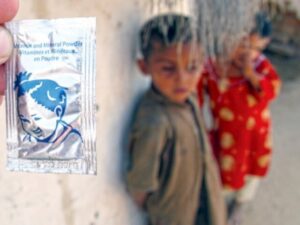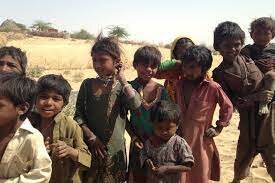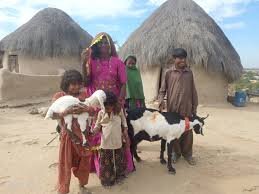Thar, a region located in the Sindh province of Pakistan, is renowned for its natural beauty and cultural heritage. From the bustling cities of Umarkot to Mithi, Salah Badin to Nangar Parkar, and Mirpurkhas to Newkot, Thar’s landscapes offer breathtaking sights and unique experiences. Despite its charm, Thar faces significant challenges, particularly in the realm of education, putting the future of thousands of children at risk.


The Educational Crisis in Thar
The local residents of Thar are deprived of quality education, with many families compelled to send their children to larger cities in Sindh to seek better educational opportunities. Thar’s way of life, distinct from urban Sindh, is deeply rooted in its cultural and natural milieu. However, the region’s educational infrastructure is severely lacking, exacerbating the socioeconomic divide and hindering development.
Key Challenges
Inadequate Infrastructure: Approximately 40% of schools in Thar lack basic facilities, such as classrooms, furniture, and proper buildings. This deficiency stems from an underfunded educational system struggling to meet the basic needs of its students.
Limited Access to Education: Only 60% of students in Thar have access to basic education. In remote and underserved areas, this figure is even lower, with numerous children, especially girls, unable to attend school due to distance and inadequate resources.
Socioeconomic Barriers: Poverty, lack of public awareness, and entrenched cultural traditions often lead families to deprioritize education. These barriers disproportionately affect girls, who face greater challenges in accessing and completing their education.
Teacher Shortages and Quality: The region faces a significant shortage of qualified teachers, with over 30% of positions unfilled. Many schools rely on untrained and underqualified staff, leading to a decline in the quality of education provided.
Pathways to Improvement
Addressing these educational challenges requires a multifaceted and proactive approach:
Enhancing Infrastructure: Investment in school infrastructure is crucial. This includes building more classrooms, providing essential furniture, and ensuring that school buildings are safe and conducive to learning.
Improving Access to Education: Expanding access to education in remote areas is vital. This can be achieved through the establishment of more schools and the provision of transportation facilities to ensure that all children can attend school.
Community Engagement and Awareness: Promoting the importance of education within the community can help shift cultural attitudes and prioritize education. Community programs and awareness campaigns can play a significant role in this transformation.
Addressing Socioeconomic Barriers: Implementing programs to alleviate poverty and provide financial support for families can encourage school attendance. Scholarships and financial aid for students, especially girls, can help overcome economic barriers to education.
Teacher Recruitment and Training: Improving the recruitment and training of teachers is essential. Investing in teacher education programs and offering incentives for qualified teachers to work in Thar can enhance the quality of education.
Conclusion
By prioritizing education and investing in human capital development, Thar has the potential to overcome its educational challenges and unlock its full potential for economic growth and prosperity. The Hindu Sindh Foundation is committed to addressing these issues and promoting a brighter future for the children of Thar. Together, we can build a foundation for sustainable development and empowerment in this vibrant region.



